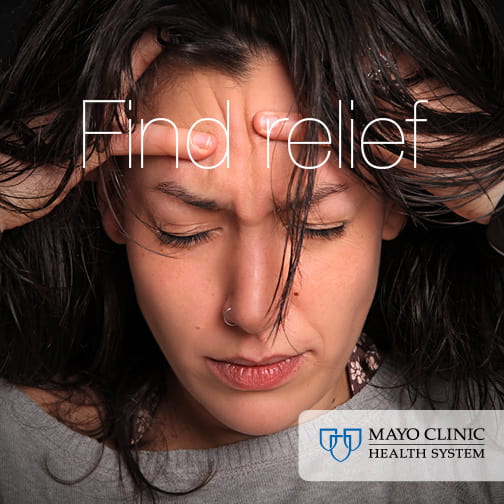Recent Posts
Holiday table topics: Know your family's health history

You know every detail of your parents’ first date and have your grandmother’s lefse recipe committed to memory. But when your doctor asks if anyone in your family has had heart disease, you draw a blank.
Sound familiar? If so, you’re not alone.
“Many people don’t know their family health history,” says Michael Rogge, M.D., a Family Medicine physician at Mayo Clinic Health System in Prairie du Chien, Wisconsin.
It’s easy to understand why. After all, it’s more fun to talk romance (or rice pudding) than rheumatoid arthritis. But knowing your health history can have an impact now — and your future. That’s because certain medical conditions are genetic or inherited.
“Just like you can inherit your father’s blue eyes or your mother’s curly hair, you can also inherit a predisposition to conditions such as diabetes, heart disease or cancer,” says Karen Hanson, a chaplain at Mayo Clinic Health System in Red Wing, Minnesota. Knowing your family history can help your provider decide what screening tests you might benefit from and when.
While it can be uncomfortable to bring up, talking about your family’s medical history is important. “Knowing this information can help you decide where to focus your prevention efforts,” says Dr. Rogge. “If there’s a family history of heart disease, for example, a heart-healthy diet becomes even more important.”
As the holiday season approaches, consider giving your family the gift of a good health history. Use your time together to talk about the diseases and conditions they — or their ancestors — have been diagnosed with.
“After the turkey dinner, before the food coma sets in, let your family know that you want to talk about the family’s health,” Hanson says. “Let them know why, and that the discussion could benefit them and their families, as well.”
The holidays also are a good time to talk about advance directives and living wills.
“These documents speak for you when you can no longer speak for yourself,” says Dr. Hanson. “They outline the care you want and identify the people you want to make decisions for you if you’re no longer able to make them for yourself.”
Dr. Rogge recommends all adults complete an advance directive or living will, especially if they have children.
“Making health care decisions is truly a gift to your family,” he says. “The documents outline your wishes, so no one needs to guess what you’d want.”
And, unlike a fruitcake or pair of slippers, that’s something that will be appreciated for generations to come.
You can create your own family health portrait using a tool from the U.S. Surgeon General. Give it a try, and share the results with your family this holiday season.





